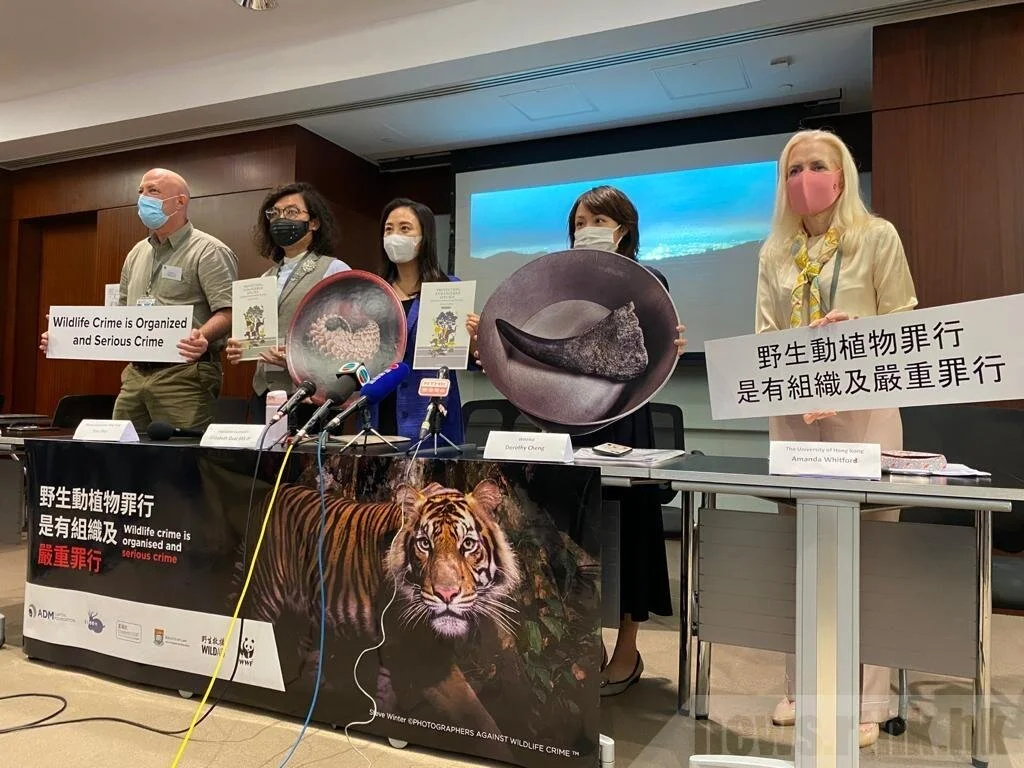Amendments to the Organised and Serious Crimes Ordinance, Cap 455.
Legislative Councillor Elizabeth Quat Pui Fan has introduced a private bill - The Organised and Serious Crimes Ordinance Bill, seeking to amend the Organised and Serious Crimes Ordinance, Cap 455 (“OSCO”), to include wildlife crimes as defined in the Protection of Endangered Species of Animals and Plants Ordinance, Cap. 586 (“PESAPO”), so as to arm investigative authorities with increased investigative powers, as well as the power to both confiscate and issue charging order over property representing the benefits of wildlife crimes.HKALPO wholeheartedly supports the provisions contained within the Bill.
Quat’s proposed amendment aims to address the problem by not directly increasing the penalties, but rather empowering the law enforcement agencies in their investigation and scope of enforcement.
OSCO provides various powers to the law enforcement agencies and the Court to investigate and enforce upon those crimes that are under Schedule 1 of the OSCO. Under section 3 and 4 of the OSCO, once a crime falls into the ambit of Schedule 1 of OSCO, the Secretary for Justice or an authorized officer may apply ex parte to the Court of First Instance to serve a notice to a suspect to provide information or materials relevant to the information, despite providing the same may incriminate that person. The Court is also empowered to issue confiscation orders, restraint orders and charging orders on the proceeds and benefits of the relevant crimes. The Court will also be armed with the option to pass enhanced sentence against the participants in the crime.
ADM Capital Foundation, a Hong Kong-based NGO that campaigns against wildlife crime in Asia, believes that the reason behind the ineffectiveness of the increased penalty is that the people being prosecuted are at the very lowest level of the trafficking scheme.
Based on an analysis of Hong Kong Court proceedings and publicly available data since 2017, ADM found that 84% of prosecutions laid against individuals were those that had been caught red-handed – those who committed the crime under the instructions of a friend, a boss or a contact person. These “mules”, accordingly to ADM, are motivated by financial incentive instead of the trafficking of goods and are hence easily replaceable. Even after these low-level traffickers are prosecuted and duly sentenced, the whole trafficking network, including the bank accounts and companies behind the scene, are still left largely untouched.
ADM was also of the view that the Hong Kong authorities are relatively reluctant in prosecuting large seizures for lack of evidence. Out of the 19 seizures of sea cargo containers in 2018-2019, only 7 arrests were made, with only 1 successful prosecution. On 16th January 2019, the Hong Kong Customs intercepted and seized a refrigerated container containing 8.3 tonnes of pangolin scales and 2.1 tonnes of ivory being transported from Nigeria to Vietnam. Further investigation revealed a major trafficking scheme involving ivory, rhino horns, pangolin scales and other endangered species out of Africa and into Mainland China. Despite the arrest of 2 suspects, no prosecutions has yet been instituted.
ADM also indicated that to their knowledge, no masterminds have ever actually been prosecuted or penalised for their part in wildlife crimes.
Proposals have been made to reform the legal framework and identify the network behind wildlife crimes. Amanda Whitfort, associate professor of law a the University of Hong Kong and HKALPO’s Project Adviser, supports the proposal of including wildlife crimes under OSCO. Whitfort explains that by including wildlife crimes in OSCO, suspects will not longer be able to rely on their right to silence, which in the past would put further investigation to a halt. If the proposed amendment is approved, the prosecutions would be able to identify the masterminds behind the scene more effectively.


